The Need for Recycling EV Lithium-ion Batteries to Sustain the
EV Industry in India

AUG 08,2024
The landscape of transportation is undergoing a profound transformation as India embraces the Electric Vehicle (EV) revolution. With a growing awareness of environmental concerns and government incentives driving the shift, the EV industry in India is experiencing an unprecedented surge in adoption. However, as the industry accelerates, it brings to the fore a critical challenge: the sustainable management of EV Lithium-ion batteries. These Lithium-ion batteries, which power these eco-friendly vehicles, have a limited lifespan and an environmental footprint that cannot be ignored. The need for recycling EV Lithium-ion batteries is paramount not only to sustain the growth of the EV industry but also to pave the way for a cleaner and greener future.
As the wheels of innovation turn, so do the wheels of EVs. Yet, these vehicles are only as strong as the Lithium-ion batteries that power them. An average EV Lithium-ion battery lasts around 7-10 years, after which its performance starts to wane, necessitating replacement. Such replacements result in discarded Lithium-ion batteries, leading to concerns about resource depletion and environmental hazards. This is where the concept of recycling steps in, offering a solution that is not only economically viable but also environmentally responsible.
Why to recycle EV batteries?
One of the most compelling reasons for recycling EV Lithium-ion batteries lies in the valuable resources they contain. Lithium, cobalt, nickel, and other minerals within these Lithium-ion batteries are finite and precious. Without effective recycling practices, these resources could become scarce, thereby raising production costs and impeding the continued growth of the EV industry. By reclaiming these resources through recycling, the industry can ensure a sustainable supply of materials, reducing its dependence on resource extraction and minimizing its ecological footprint.
Environmental consciousness is a driving force behind the transition to EVs, making it imperative to address the potential environmental impact of discarded Lithium-ion batteries. When improperly disposed of, EV Lithium-ion batteries can leak toxic chemicals and heavy metals into the soil and water, polluting ecosystems and harming public health. Recycling these Lithium-ion batteries reduces the risk of such pollution, preventing environmental degradation and safeguarding both nature and society.
Recycling EV Lithium-ion batteries also aligns with energy efficiency goals. Extracting and processing raw materials for Lithium-ion battery production demands substantial energy and releases greenhouse gases into the atmosphere. By recycling, the industry can reduce the need for such energy-intensive processes, contributing to a greener and more sustainable production cycle. This not only helps combat climate change but also aligns with India’s commitment to reducing carbon emissions.
Beyond environmental benefits, establishing a robust Lithium-ion battery recycling industry in India can unlock numerous economic opportunities. A thriving recycling sector would create jobs, stimulate technological innovation, and attract investments in green technologies. By nurturing this sector, India can position itself as a leader in sustainable practices and pave the way for a circular economy, where products and materials are reused and repurposed to minimize waste and environmental impact.
Recycling EV Lithium-ion batteries also carries the promise of reducing the burden on landfills and waste management systems. Discarded Lithium-ion batteries, if not recycled, would contribute to the growing issue of electronic waste, further straining limited landfill capacity and potentially creating hazardous situations. Proper recycling practices alleviate this pressure, mitigating the potential environmental hazards associated with improper disposal.
Regulatory compliance cannot be overlooked in the context of Lithium-ion battery recycling. Many countries are enacting regulations that mandate the proper disposal and recycling of EV Lithium-ion batteries. India’s Central Pollution Control Board (CPCB) has established recycling targets for producers, emphasizing the importance of partnering with registered recyclers possessing adequate recycling facilities. Adhering to these regulations is not just a legal obligation but a necessity to ensure the sustainable growth of the EV industry.
From a long-term financial perspective, recycling EV Lithium-ion batteries present a compelling case for cost savings. Recycled materials can be less expensive than virgin resources, contributing to the affordability of EVs and expanding their accessibility to a broader demographic. This cost-effectiveness factor further enhances the appeal of EVs, making them a viable option for a larger segment of the population.
Challenges involved in battery recycling
However, the journey toward effective Lithium-ion battery recycling infrastructure isn’t without its challenges. It requires collaboration between various stakeholders, including manufacturers, researchers, policymakers, and waste management facilities. Furthermore, technological advancements in Lithium-ion battery recycling are crucial to enhancing resource recovery rates and minimizing environmental impact. Research and development efforts in this field can pave the way for more efficient recycling processes, unlocking new avenues for sustainability.
Public awareness and education are pivotal in fostering responsible consumption and production practices. Informing consumers, manufacturers, and policymakers about the benefits of recycling EV Lithium-ion batteries is essential for creating a culture that prioritizes environmental responsibility. Such awareness campaigns can galvanize support for recycling initiatives and contribute to a collective mindset shift.
On a global scale, responsible Lithium-ion battery disposal and recycling can enhance India’s reputation as a forward-thinking, environmentally conscious player in the evolving EV market. By showcasing its commitment to sustainable practices, India can emerge as a leader in the industry, shaping the narrative and influencing the trajectory of global electric mobility.
Reference by:- Financial Express
More Relevant

Mining Technology
The cost of green energy: lithium mining’s impact on nature and people
News
Head of the environmental unit of Chile's Atacama Indigenous Council, Francis Mandoca, states that lithium mines ruin one zone to satisfy another.
read more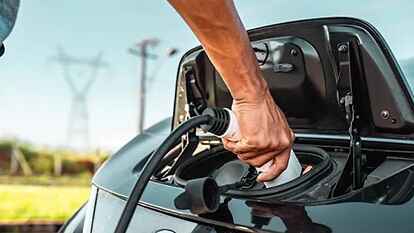
Financial Express
The Need for Recycling EV Lithium-ion Batteries to Sustain the EV Industry in India
News
Beyond environmental benefits, establishing a robust Lithium-ion battery recycling industry in India can numerous economic opportunities.
read more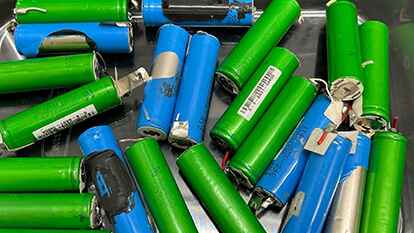
Times of India
Lithium-ion battery recycling and sustainability
News
Lithium-ion battery recycling entails a series of intricate steps, each playing a crucial role in transforming discarded batteries into reusable.
read more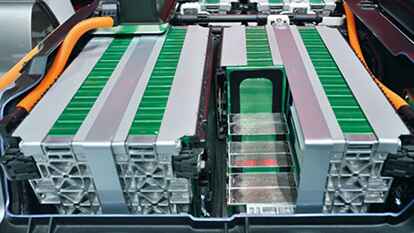
Times of India
EV Batteries and E-waste
News
Electric vehicles (EVs) have gained significant popularity in recent years due to their environmental benefits and lower operating costs compared to traditional combustion engine vehicles.
read more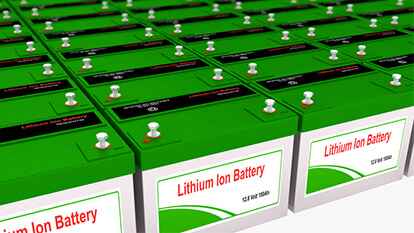
Euro News
Demand for lithium-ion batteries is unprecedented - but is mining the
News
To get the enormous mining operations in the frame, I chartered a small aeroplane and flew high above them Hegen.
read more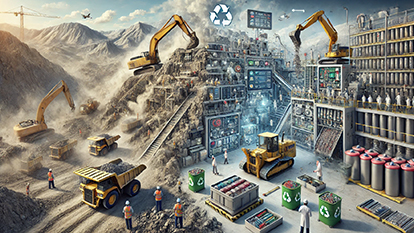
Economics Times
What should be India’s Lithium(Li) Ambition?
News
India is striving to establish reliable lithium supply to bolster its growing electric vehicle (EV) industry.
read more
EUAuto
India-EU collaboration boosts EV battery recycling startups
News
The discussion emphasised the importance of collaboration between Indian and European startups in EV battery recycling technologies...
read more
